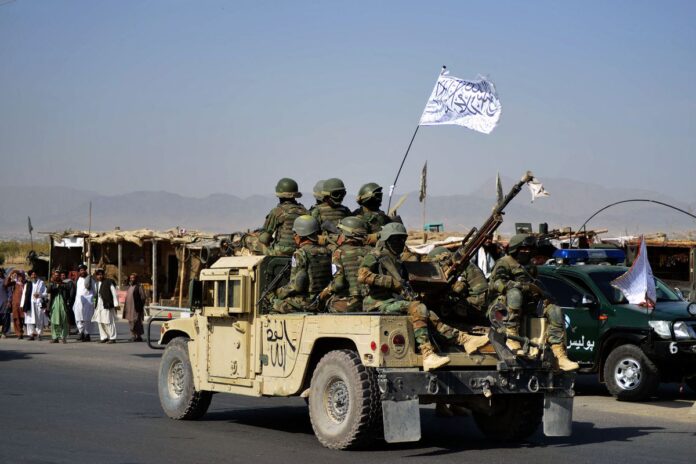China, Russia, Iran and 4 central Asian countries – Kazakhstan, Kyrgyzstan, Uzbekistan and Tajikistan – joined India in strongly condemning terrorism in a joint statement after the 4th NSA-level regional security dialogue in Dushanbe while also calling for dismantling of terror camps in Afghanistan and the region.
Significantly, while not naming the US or any other Western country, the joint statement India signed on to mentioned the “view” that countries responsible for the current situation in Afghanistan should fulfil their “obligations” for economic reconstruction of Afghanistan.
Participating in the conference on Friday, NSA Ajit Doval had called for enhanced efforts to check the activities of terror groups and also underlined the significance of respecting the basic rights of women and children at a time the Taliban are said to have imposed severe restrictions on their activities. According to the Iranians, in a bilateral with his counterpart Ali Shamkhani, Doval also warned against possible use by terror groups of leftover or abandoned US weapons in Afghanistan.
“The heads of delegations called on the relevant Afghan parties to take more realistic steps to eradicate the types of terrorist groups, stop the movement of all terrorist organizations, dismantle their training camps both in Afghanistan and in the region, and ensure that Afghanistan does not serve as a breeding ground, safe haven or source for the spread of terrorism,” said the joint statement issued after the Dushanbe talks.
While the specifics of China’s terrorism concerns vary from India’s in that China is mostly focused on the activities of Xinjiang-based East Turkestan Islamic Movement (ETIM), the mention of the need to dismantle terror camps in the region is still significant for India in the context of anti-India activities by Pakistan based groups like LeT and JeM. The government also managed to get a mention in the joint statement of the Delhi Consensus arrived at in the 3rd regional security dialogue on Afghanistan hosted by Doval last year in November. China did not participate in that conference. Beijing too got a mention of its Tunxi initiative for Afghanistan reconstruction and Russia its Moscow Format and Extended Troika talks.
On terrorism, the joint statement went on to say that the participants noted the “inadmissibility of international terrorist organisations using the territory of Afghanistan for shelter, training, planning or financing of any terrorist acts against the countries of the region”.
“The heads of delegations reaffirmed their intention to establish cooperation in the operational exchange of information between the states bordering Afghanistan and other interested countries on the situation related to the activities of destructive groups,” it said.
Pakistan, which had not joined the Delhi dialogue despite being invited, again went unrepresented. The new government is yet to appoint an NSA.
According to the joint statement, the participants reaffirmed the principle of non-interference in the internal affairs of Afghanistan and noted that the mechanisms for establishing lasting peace and harmony should be developed in accordance with the principle “By the Afghans themselves, under the leadership of the Afghans and under their control.”
They also called for a broad and inclusive political structure in Afghanistan and insisted that Afghanistan comply with international law and obligations under bilateral and multilateral treaties and agreements. Without specifically mentioning the plight of women, the participants sought respect for the rights and freedoms of all citizens of Afghanistan “without exception”. They said that respect and protection of the interests of other nationalities, the rights and freedoms of citizens, contributes to improving the internal situation in Afghanistan, as well as the security of the countries of the region.
The Taliban believe though the they are fully abiding by the 2020 Doha Agreement and that they don’t allow anyone to use the soil of Afghanistan against any neighboring and regional country. The Taliban head of the political office in Qatar said earlier this week that If any one had an issue, Taliban would look to resolve it through peaceful means and dialogue but pressure tactics, he said, won’t work in Afghanistan.








































